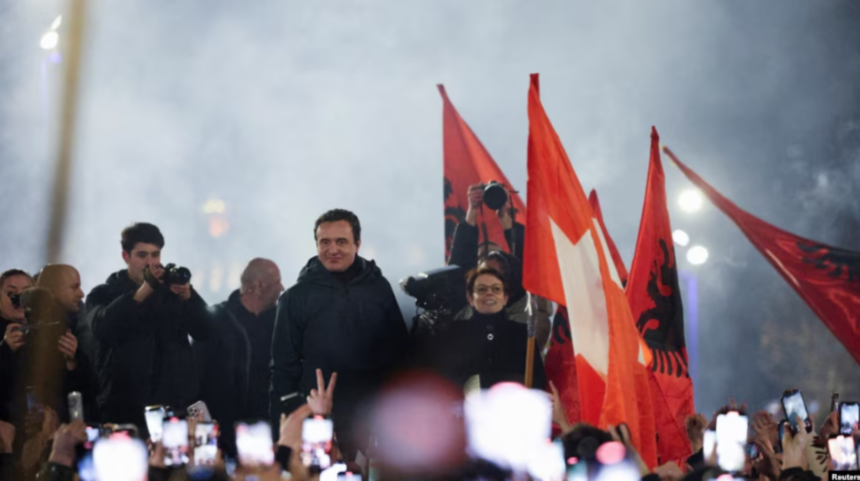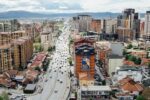With 90 percent of the votes counted, the Movement for Self-Determination (VV) leads with 41 percent, followed by the Democratic Party (PDK) with 22.37 percent, the Democratic League of Kosovo (LDK) with 17.57 percent, and the Alliance for the Future of Kosovo (AAK) with 7.56 percent.
Prime Minister Albin Kurti stated on Sunday evening, “We are the winners who will form the next cabinet,” but did not provide details on who he might try to form it with.
According to the Central Election Commission, 40.6 percent of eligible voters participated in Sunday’s elections, about 7 percent less than in the 2021 elections.
Twenty out of 120 seats in Kosovo’s parliament are reserved for national minorities, ten of which are allocated for Serbian parties.
The Serbian List, the main party representing the ethnic Serbian minority, received 3.98 percent of the votes. According to its leader, Zlatan Elek, the Serbian List is “the absolute winner of these elections.”
As the counting of remaining votes, including those from the diaspora, continues, observers say that the election results leave many possibilities open for their implementation. If the Movement for Self-Determination does not secure a coalition with any opposition party, it will be difficult to form a government with the minority deputies. On Sunday evening, Kurti ruled out the possibility of forming a government with opposition parties, using a harsher tone and even offensive language against them. Another option is for the opposition to try to form a new government after the efforts of the Movement for Self-Determination are exhausted.
On Monday, the leader of the Democratic League of Kosovo, Lumir Abdixhiku, said, “After the final vote count, the LDK will present its political positions.”
Blerand Stavileci, the spokesperson for the campaign of the Democratic Party of Kosovo, stated that the party would wait for the official vote count to finish “before taking any other political positions.”
The leader of the Alliance for the Future of Kosovo, Ramush Haradinaj, said he would cooperate unconditionally “with opposition Albanian political parties to create a majority.”
“It is not just about what the Alliance does, but what Kosovo does, and I think it is an honor for me to help an opposition government, but definitely not with the Movement for Self-Determination, with Mr. Kurti,” said Haradinaj.
Whichever government is formed, it will face challenges in improving the economic situation, education, healthcare, and combating poverty. On the foreign front, the new government will need to address efforts to renew relations with Western powers, which have criticized Prime Minister Kurti’s actions in the north of Kosovo, predominantly inhabited by Serbs.
The new government will also have to deal with the stalled talks on normalizing relations with Serbia. Both the United States and the European Union have urged both sides to implement the agreement reached two years ago, according to which Kosovo should establish the Association of Serbian Majority Municipalities, while Belgrade should “de facto” recognize Kosovo’s independence.







